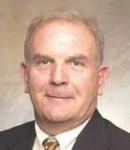June 1, 2010

North Carolina agriculture is losing — kind of — one of its finest, but gaining a dedicated and more active leader in helping agriculture in the Tar Heel state develop a sound business model for rural and urban partnerships.

HENRY WALKER, North Carolina farmer and businessman, is downsizing his farming operation, but not his interest in farming.
Long-time North Carolina cattleman and grain grower Henry Walker says he is gradually getting out of the grain business and downsizing his cattle operation.
He grew up on the Davie County farm he operates and literally worked on the place all his life. All of his adult life has been involved in building his farming enterprise. The price of long hours and hard work has taken its toll. He suffers from a tough combination of lung ailments that he says has him in the short rows of production agriculture.
“I had hoped my son would carry on the Walker family farming tradition, but he has a different set of health problems that will likely force him out of the farming operation sooner than later,” Walker says.
Though farm work took precedence over formal college training, Walker took a natural penchant for math and more than his share of good common sense and built a farming operation that at one time included more than 1,500 acres of grain crops and several hundred head of stocker and feeder cattle.
Along the way, he has been active in the North Carolina and U.S. Soybean associations and too many county and state agricultural organizations to mention — all of which started with an active 4-H program in grade school.
Sitting under a 150 year old oak tree on a farm his ancestors first farmed in the mid-1700s, on a crisp and clear April morning Walker talked about farming, what it’s like to realize it’s time to get out, what it takes to get out and some of his thoughts on the future of agriculture.
He grew up on a dairy farm, but by age 12 began leasing his own farm land. Much of his earliest financing came from an egg route, which he grew from a few nearby families to a list of customers that included area grocery stores. His early farming enterprise was run in addition to getting up at 4 a.m. to milk cows, do other farm chores and attend school.
“We worked hard, had good family and neighbor support, and we were able to build a pretty good farming operation, then came the 1980s. My wife and I often didn’t know how we were going to make it, but we did. Many of myDavie County neighbors didn’t,” he says
The drought years of the 1980s made Walker more conservative, but he stresses being conservative doesn’t mean not being innovative and taking risks when the stakes are high enough.
Early on in his farming career he saw the merits of no-till farming, which helped him survive the rough years of high interest rates, low commodity prices and a seemingly endless series of droughts followed by floods, or vice-versa.
Taking care of the land is something all farmers try to do — the better job they do, the more successful they will be in growing crops, he says. Among other innovative things Walker has done in his farming career, he was an early adapter of no-till, then never-till farming. Most of his Davie County farm has not seen a plow in more than 25 years.
He laments that he had to abandon his latest soil amendment project, purple vetch. Record fall rains washed out his vetch plans, not to mention one of his last crops of wheat.
Walker stresses he is conservative by nature, but not to the point of not taking a few chances along the way. He was one of 14 partners who started a 30 million gallon a year biodiesel plant near Mount Olive, N.C.
“When we started on the project, soybean prices had been depressed for several years. The business plan we developed was good, but little was known at that time about biodiesel production, so finding the money to operate the plant was difficult,” he says.
By the time all the marketing channels were developed and before construction started on the plant, soybean prices began to climb. Price of beans, demand for biodiesel and a number of other economic factors combined to be the death knell of the biodiesel plant.
“This was a $40 million project named Bio-Energy, LLC. We sold the stock shares to investors (about $25 million worth).
By the time we had the shares sold, found loan money to build the plant, steel, copper, and concrete had increased in price so much and also the price of raw soybean oil (oil went from 15 cents a pound to about 70 cents a pound) that the business model on paper was showing red ink, if we were going to try to run it. We decided to return all share money with interest and not build the plant,” Walker adds.
It was, Walker, surmises, a good example of how hard work and dedicated people don’t always equal success, no matter how valuable the cause. “When we closed the plant, it was the right thing to do,” he says.
Getting out of farming now is a tough thing to do, he says. It’s hard to let land go that you’ve been renting 30-40 years. Some natural attrition takes land out of farming, but it’s tough to see land go that you’ve spent most of your life building up.
Davie County is one of the fastest growing counties in North Carolina, which has played a role in driving land costs up. However, some of the increase in land prices for agriculture comes from too many farmers and livestock producers trying to get too big to survive. Getting bigger is the only way they see to survive, but they don’t understand the long-term effects they are having on agriculture, Walker says.
“Once a farm gets to a certain size, the risks become so great that operators have to squeeze suppliers to get the best price. Many of these folks are pushed out of business. Once that infrastructure is gone, it’s gone forever. Farmers like us, who are somewhere between a hobby farmer and a big farming enterprise are the ones that suffer the most.”
“In addition to health problems, trying to compete for higher cost land and buying ultra-expensive new equipment all play a part in my getting out of farming,” the North Carolina farmer says.
Getting out of agriculture, he corrects himself, is not exactly right. “I’ll always be a farmer and I’ll always do things to help farmers. Over the years, I’ve served on countless boards and in grower organizations, and I’ve made friends with farmers all over the country. So, I’m not turning my back on farming, I’m just getting out of the production end of it,” he adds.
Trying to preserve agriculture in Davie County and throughout North Carolina is something Walker says he will devote more time to as he continues to downsize his farming operation.
Already, he has been instrumental in setting up a County Agricultural-Business Ordinance in Davie County. The first of its kind in North Carolina, Walker hopes it will be a model for other agricultural-oriented counties in the State.
“Essentially, we in agriculture worked with other business leaders and county officials to get zoning laws relaxed to the point of helping agricultural businesses prosper in Davie County.
“For example, the Yadkin River Valley has become a center for wine production in North Carolina. Wineries get many of the same tax benefits as production agriculture — as long as they grow or buy grapes and process these crops. When a winery starts selling aprons, corkscrews, serving cheese and crackers and such at wine tastings, they fall under a whole different set of restraints and tax liabilities.
“The Agriculture-Business Ordinance we developed in Davie County helps businesses like these and small farmers with roadside stands get in business and stay in business,” he says.
Despite his health problems, Walker remains intellectually as active as ever. Where his post-farming energies will be focused is a work in progress. That these efforts will be directed toward helping agriculture and rural North Carolina is a certainty.
e-mail: [email protected]
About the Author(s)
You May Also Like






